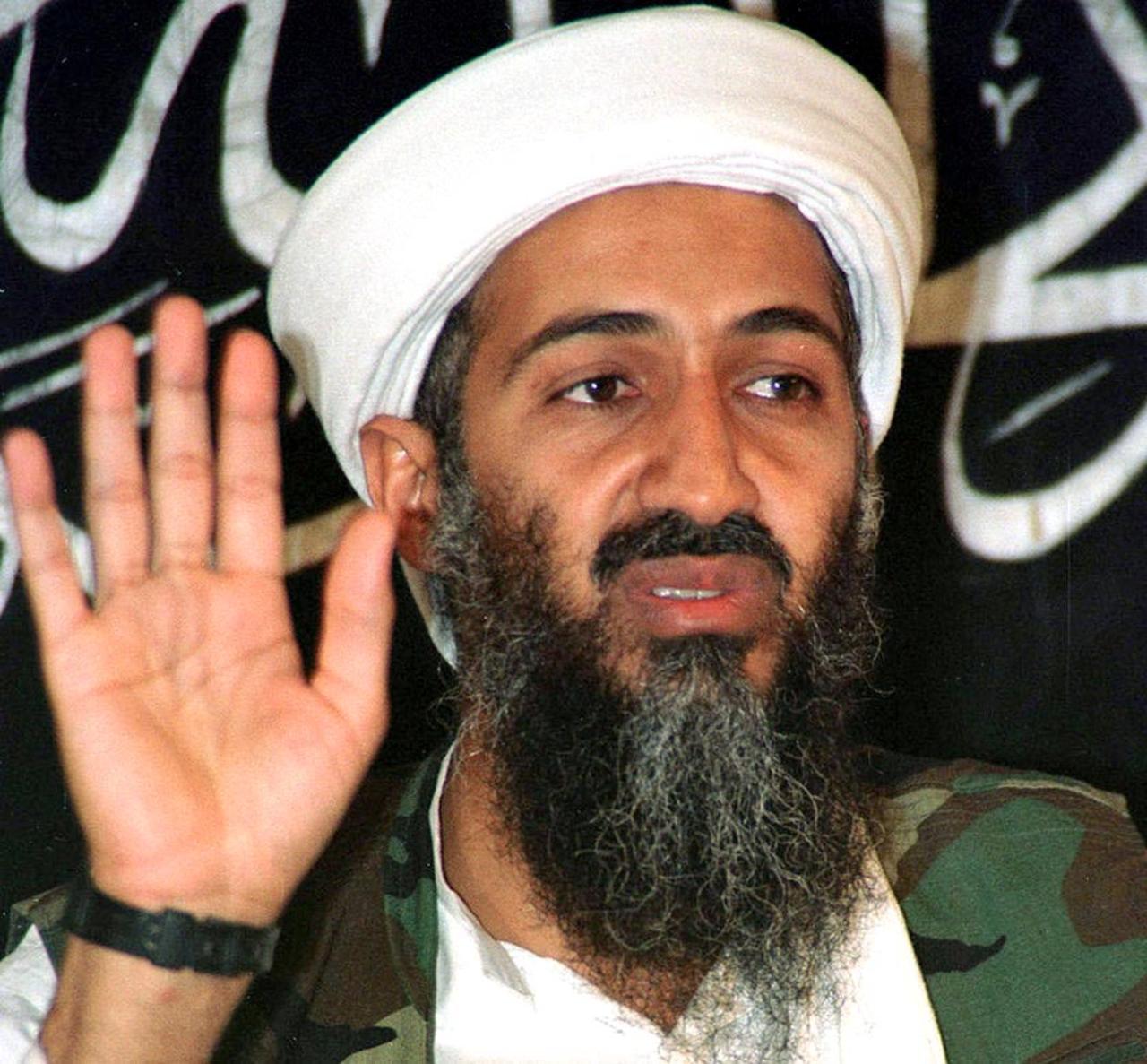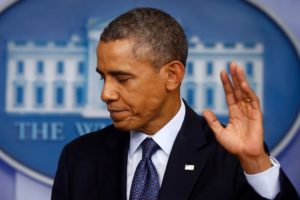Learning of the death of Osama bin Laden was one of those rare moments in life, the kind that cause us to realize instantly that we will always remember where we were when it happened. Like many Americans, the last time I had experienced such a moment was a related event, when almost ten years previous when I had returned to my law school apartment from a morning class to find one of the Twin Towers already burning, and before long, an explosion at the second one. For all intents and purposes, that day ended this past Sunday with the glorious news that Osama bin Laden had finally met a pleasingly gory demise. Never had I been so thankful (by which I mean “at all thankful”) to hear President Obama speak, and when he took to the lectern and finally confirmed the media reports, I applauded him, grinning from ear to ear.
Yes, the President’s brief speech was somewhat vainglorious. Yes, he aggrandized his minimal role while glossing over (and in the case of President Bush, outright ignoring) the contributions of others, resulting in a speech bereft of significant details. But that was to be expected, considering he had done the same thing just over two years ago when he bragged that he “gave the order” for snipers to kill the Somalia pirates who had taken Americans hostage, as though to convince us that he had somehow contributed more than the expert marksmen and military planners, and therefore deserved the bulk of the praise for the mission’s success.
Still, harsh critic though I am, this time I chose to allow the President this minor indulgence. He is, after all, the President, and being President comes with certain privileges, not the least of which is an entitlement to some degree of latitude when it comes to taking more credit than deserved for moments of national achievement and historic import. Besides, the news he delivered was not just extraordinary, it was transcendent. It brought with it a sense of national unity. At that moment, I was not a conservative and he was not a liberal. None of us were. We were just Americans, joined, albeit temporarily, in a common thankfulness for a happy ending to a rather dark chapter in our history. A shame, really, that we are most unified, perhaps only truly unified, in moments born of tragedy, but at least we are unified then, rather than never at all.
Yet, though the news itself was momentous, its effect did not seem to be. For example, the forty-thousand or so people watching the Mets take on the Phillies in Philadelphia (the only national sports broadcast on the air at that late hour) began a “U-S-A” chant as the news spread throughout the stadium. But at least from what could be heard on the ESPN broadcast and replays, the chant was tepid, broken, and intermittent. Anyone expecting a highly-charged emotional scene reminiscent of George W. Bush throwing out the first pitch in front of an ebullient Yankee Stadium shortly after Nine-Eleven would have been soundly disappointed.
Meanwhile, crowds gathered outside the White House and at Times Square, but they did not seem to be particularly large crowds, especially as measured against those we see so frequently clogging the streets of whichever Middle Eastern capital happens to be burning in turmoil on a given week. And rather than euphoria the kind of which accompanies the end of a long national war or project, the celebrations in D.C. and New York seemed more akin to those seen when a local high school wins a championship. It’s a nice moment, but it lacks substance and it’s fleeting.
In fact, one had to wonder whether the many college-aged young adults gathered in front of the White House, a few holding Obama’s often derided “Change You Can Believe In” signs, were really cheering the death of bin Laden, or whether many were simply using the news as an opportunity to gloatingly rejoice in a political victory for their favorite President. Was this a spontaneous national celebration (strangely localized in only two cities and pockets of one ballpark), or a makeshift campaign rally?
Nationally, there seemed to be no widespread catharsis. Sure, we were all happy about the news, but bin Laden was yesterday’s news. Though it had taken nearly a decade to kill him, we hadn’t been waiting all that time. We waited for months, and we waited for a few years — the capture of Saddam Hussein gave us renewed hope — but then we grew tired of waiting and life went on. We didn’t build bomb shelters. We didn’t do air raid drills. We didn’t have a draft. The sun continued to rise, our hearts continued to beat, the terrorists didn’t strike — content as they seemed to be fighting our soldiers overseas — the economy struggled, a new President was elected, and somewhere along the way Nine-Eleven just became a memory.
And who could expect otherwise? The networks hardly even cover Afghanistan or Iraq these days. Heck, they hardly even cover Libya, and that war just started a few weeks ago. Part of the reason for that is that the media does not want to call attention to conflicts that made President Bush so unpopular, lest The Chosen One suffer the same fate as his predecessor. And part of the reason is that, yes, our collective attention span is short, especially for news that the comes to us from countries most of us cannot locate on a map, involving people far different than our own, whose names we cannot pronounce, whose language we cannot speak, and whose culture we do not understand, nor much care to.
But more than that, the reason we don’t focus on global terrorism anymore is that for the vast majority of Americans, this conflict simply does not affect our everyday lives. Terrorism is distant to us. And that’s a good thing. It means we’re winning. The success of the War on Terror was never meant to be measured by how many bad guys we killed, because there will always be more bad guys to kill. Instead, success in this sort of war is measured by the ability of the average American to get on with his life, and to be able to focus on the things most important to him or her, without interference from and preoccupation with fear of terrorists. By that measure, we are succeeding to an incredible extent.
So, by all means, thank President Obama and give him the credit he deserves for killing Osama bin Laden. But thank President Bush, too. He’s the one who took the fight to the enemy overseas, containing the War on Terror to battlefields far away from our homeland and our national consciousness. He’s the reason our lives seem normal today. And he’s the reason the death of our most feared enemy brought relatively restrained applause, instead of a profoundly felt sigh of relief.
May God bless and guide both men.


